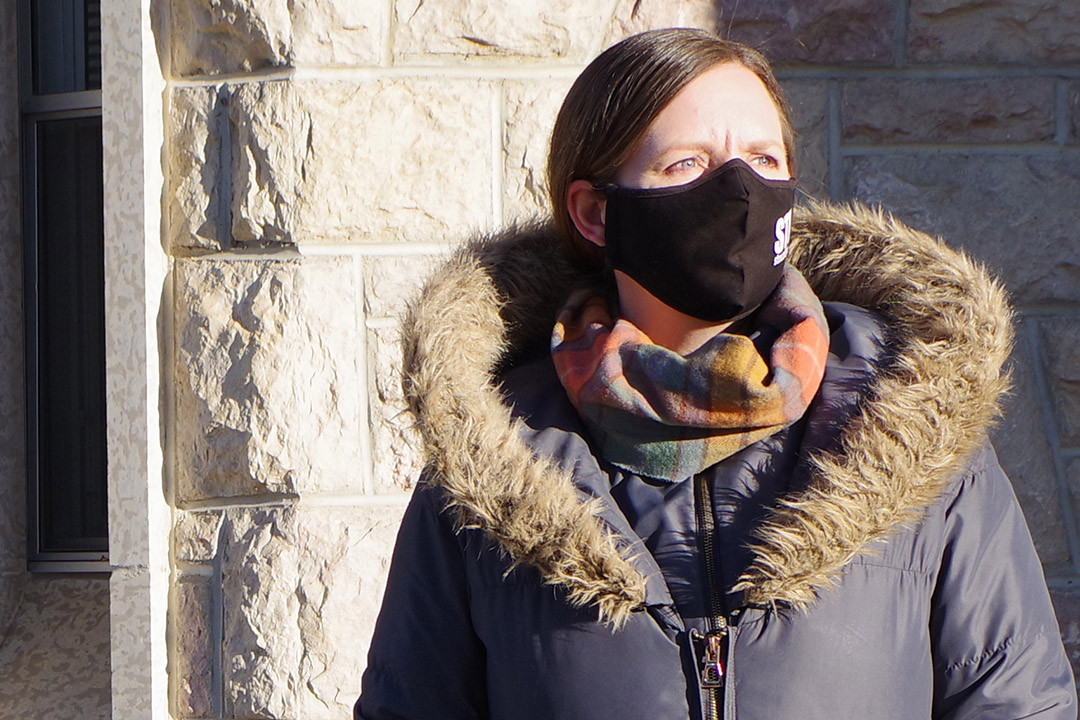
STM researcher assessing bystander intervention
St. Thomas More College (STM) shares University of Saskatchewan’s (USask) commitment to ensuring a safe environment for all students, faculty, and staff, including freedom from sexual violence.
By Jacquie BergIn a dedicated section of the USask student support web pages, sexual violence is defined as an “umbrella term that includes sexual harassment, sexual abuse and sexual assault affecting people of all ages, genders, and sexual orientations.”
Dr. Carie Buchanan (PhD), assistant professor in psychology at STM, received a Social Sciences and Humanities Research Council Insight Development Grant for her project, Evaluating Prosocial Bystander Intervention Training with Undergraduate Students in Preventing Sexual Assaults. She is working with co-principal investigator Dr. Karen Lawson (PhD) of USask, collaborator Dr. Donald McCreary (PhD) of Brock University, and supported by several graduate students.
“Bystander intervention training (BIT) provides skills to enable people to safely and confidently intervene in situations that may be violent or have potential to end in violence,” said Buchanan.
“Through our research we want to determine if this training results in a measurable difference in students’ ability to properly assess their situation and the risk factors, to in turn prevent sexual violence and/or intervene to impact the situation positively. Equipping students with knowledge and skills in recognizing and safely intervening in situations wherein sexual violence is occurring or may occur, will help make campus safer.”
Stats Canada’s fall 2020 survey on Individual Safety in the Postsecondary Student Population, reflects that a majority of students at Canadian post-secondary schools witnessed or experienced unwanted sexualized behaviours in a post-secondary setting in 2019.
Marta Burczycka, reporting for the Canadian Centre for Justice and Community Safety Statistics, noted that “most students chose not to intervene, seek help or take other action when they witnessed unwanted sexualized behaviours because they felt uncomfortable, because they feared negative consequences, or because they feared for their safety.”
Buchanan’s research will assess those who are able to recognize a bad situation and know the appropriate manner to safely intervene to impact a situation positively—prosocial bystanders. This ability is key for sexual violence prevention.
USask Peer Health mentors started in-person BIT workshops in 2017 until COVID-19 restrictions forced a halt. Online bystander intervention training modules are now available, open to students, faculty and staff from USask and other campuses.
As a developmental researcher, Buchanan has always been interested in ways to foster healthy relationships. So, while providing the tools is important, she felt the need for evidence-based research to address and assess the effectiveness of this campus program. Lawson, an applied social psychologist, serves as an expert in program evaluation on the team. Through metrics, including workshop participant pre-testing and post-testing, they will evaluate the short and long-term impact of BIT training.
“Research results will be then used to inform changes made to the bystander intervention training offered to students, to improve efficacy and promote positive change in students’ social norms that may support sexual violence,” Buchanan said.
Buchanan believes that “grounding this evaluation research in theory will better impact BIT because foundational knowledge regarding consent, for example, would foster a better understanding of the risk. If you don’t recognize risk, you don’t realize that you should intervene.”
“Athletes hold social capital on campuses in North America,” Buchanan added. “If they agree to participate in these preventative workshops, others might agree. USask coaches and students expressed interest in this initiative and we are excited to be in discussion to begin testing the effectiveness of the sexual violence prevention modules with the Huskies athletes.”
If proven effective through evidence-based research, BIT training may become a common prerequisite on campuses across the country, before students integrate into campus life.
While few universities offer this preventative training, USask officials are confident in the merit of this unique leading initiative for the campus community.
“The goal of this research is to ensure prevention on campus versus only intervention,” Buchanan said. “I am confident that we can create a safer environment for all through education.”

